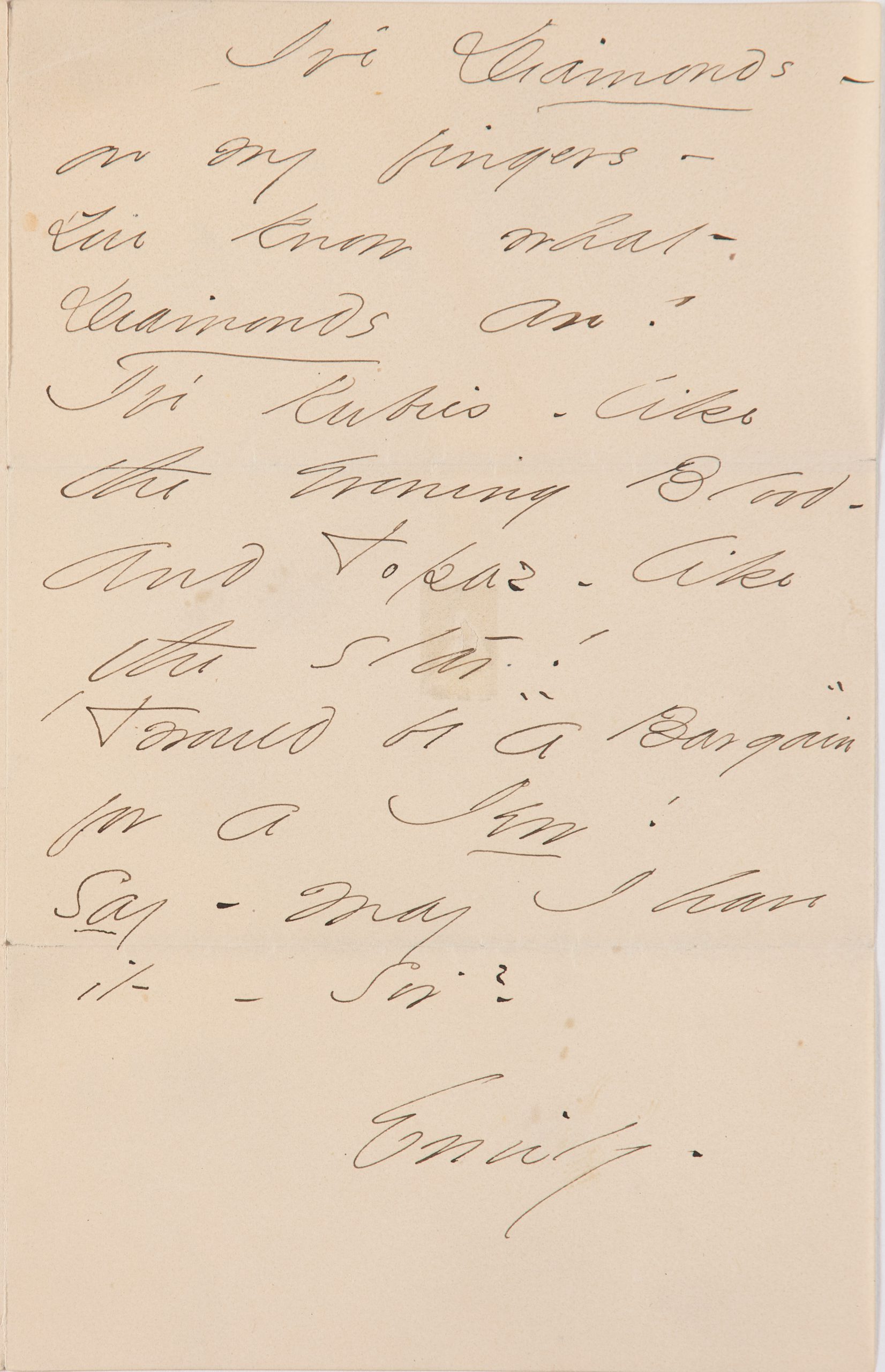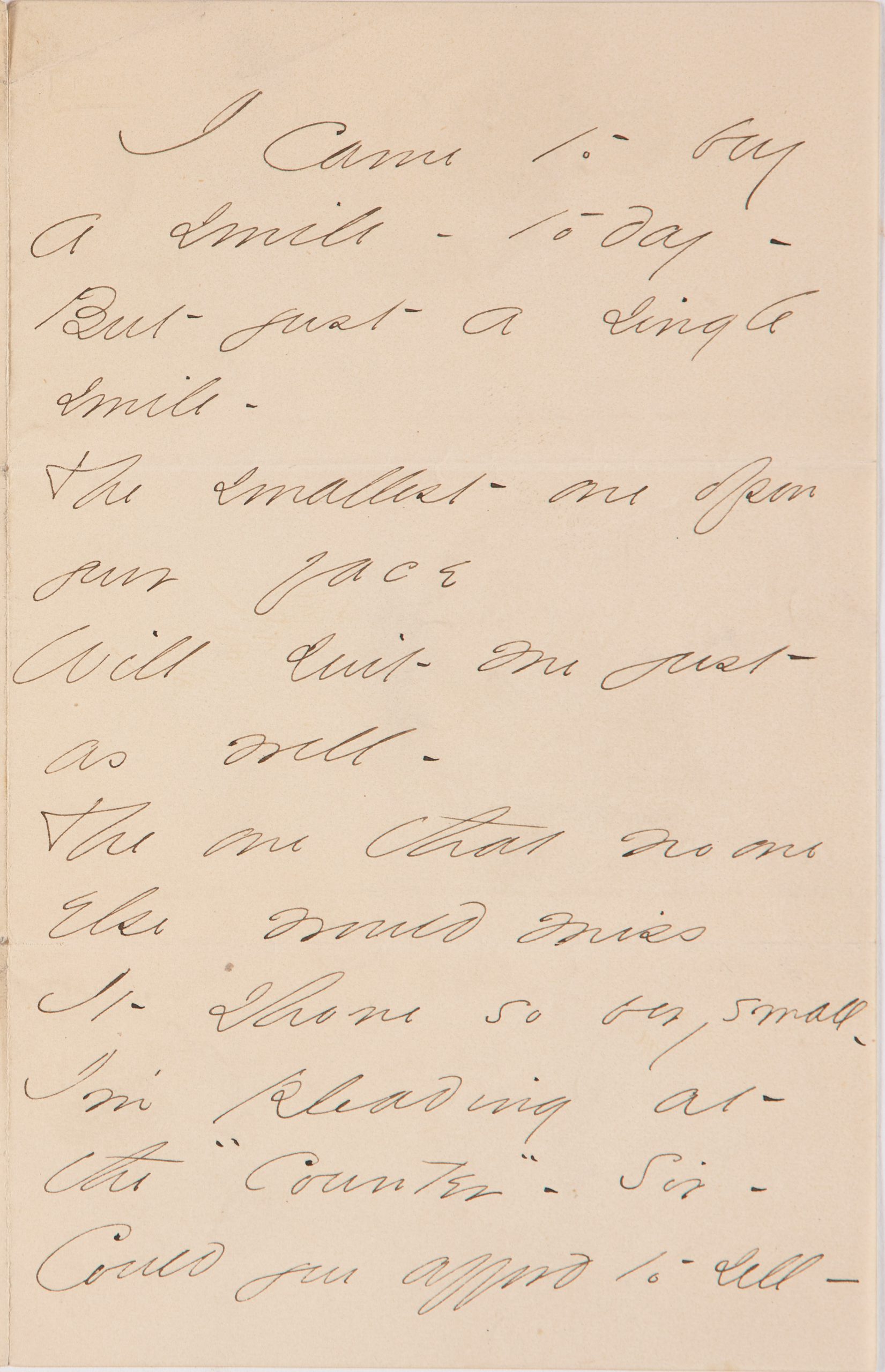a rare complete Emily Dickinson manuscript poem
DICKINSON, EMILY. Autograph manuscript signed “Emily,” the poem “I came to buy a smile – today.”
Amherst, Massachusetts, ca. 1861
12mo. 2 pages. Small stain to second page, partial separation at fold. Near fine condition.
In this rare manuscript poem by Emily Dickinson, the speaker solicits a “shopkeeper’s” smile:
I came to buy a smile—today—
But just a single smile—
The smallest one upon your face
Will suit me just as well–
The one that no one else would miss
It shone so very small—
I’m pleading at the “counter”—sir—
Could you afford to sell—
I’ve Diamonds—on my fingers—
You know what Diamonds are?
I’ve Rubies—like the Evening Blood—
And Topaz—like the Star!
’Twould be “a Bargain” for a Jew!
Say–may I have it–Sir?
The poem showcases the poet’s signature use of ballad verse as well as jewel imagery representative of her “interest in the natural world and aesthetic presentation” (Kelly et al., The Networked Recluse: The Connected World of Emily Dickinson).
Dickinson famously published only a handful of poems in her lifetime. Instead she shared her work in letters to mentors, friends, and a few others. She evidently sent this poem to family friend Samuel Bowles, the publisher of the Springfield Republican. Dickinson sent some forty poems to Bowles over the course of their correspondence between 1861 and 1862. None was among the seven uncredited poems printed in the Republican—likely without Dickinson’s consent – during her lifetime. This is one of two extant autograph manuscripts of “I Came to buy a smile— today.” The other, held by Harvard, is not signed, and it does not show Dickinson’s expressive punctuation to the same extent as the present manuscript.
This poem demonstrates Dickinson’s characteristic imaginative use of line breaks and punctuation. Scholars have long emphasized the importance of reading Dickinson’s works in their original manuscript form. Printed editions of her poetry lose essential aspects of their meaning when they neglect her unique line arrangements and punctuation. Even with access to digital copies of Dickinson manuscripts, studying digital reproductions can lead us to “lose track of [the manuscripts’] status as individual pieces of paper that were marked, folded, corrected, mutilated, sent through the mails, sewn into booklets, or tucked between the pages of a book” (Kelly).
This is a rare opportunity to acquire a complete Emily Dickinson poem, a centerpiece for any American literature collection. Most of Dickinson’s manuscripts have long been in institutional collections, particularly those of Harvard, Amherst, Boston Public Library, and the Jones Library in Amherst.
$125,000




